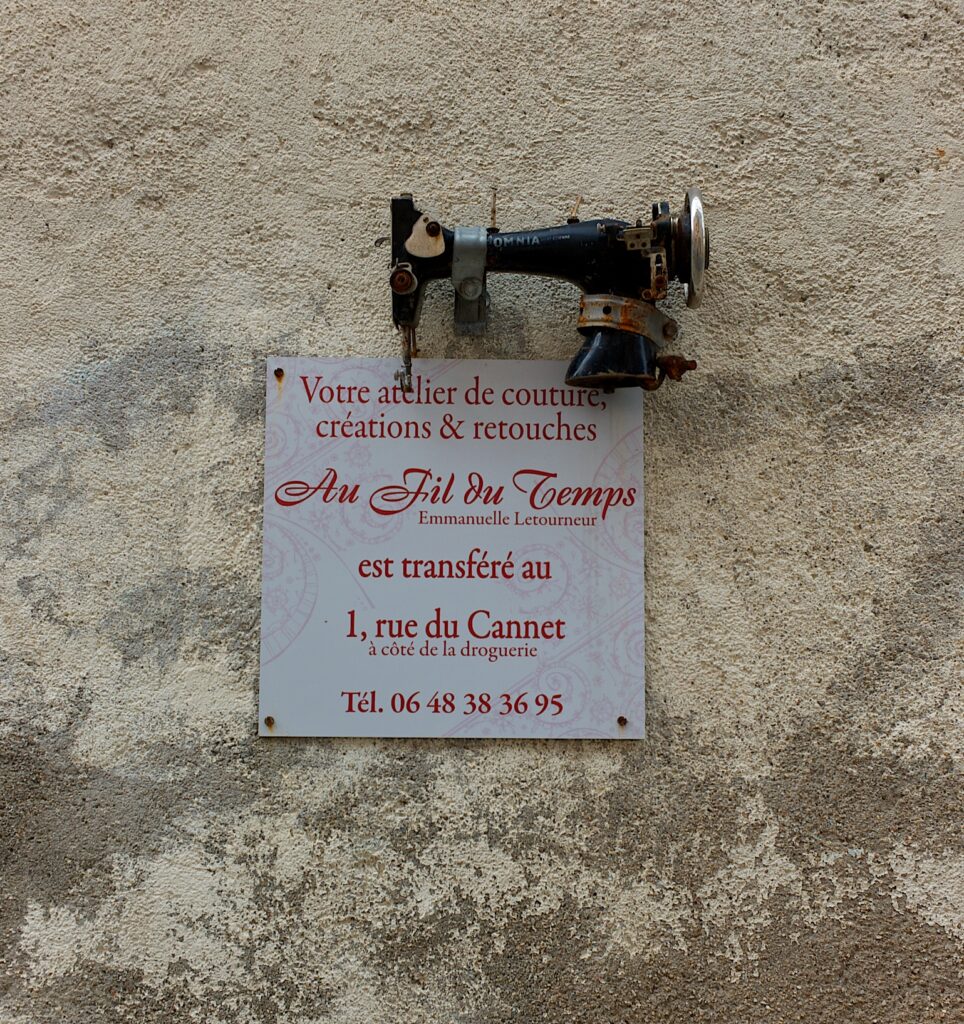Redirection done right

Seen on a wall in Aups.
Quote of the Day
”Fighting fire with fire only gets you ashes.”
- Abigail van Buren
Musical alternative to the morning’s radio news
Liam O’Flynn | Limerick’s Lamentation
This is a very old Irish tune which derives its title from the siege and fall of the city of Limerick to the English forces of Ginkel in 1691, at the end of the Williamite Wars. The tune is sometimes known as “Sarsfield’s Lamentation” from the name of the commander of the Irish forces at Limerick. Seems appropriate to a day spent watching footage of Ukrainians being forced from their homes by Russian shelling.
Long Read of the Day
The Battle of the Gauges
A nice diversionary piece of railway history by Patricia Fara in History Today:
Queen Victoria was definitely not amused. Whenever she travelled from her estate on the Isle of Wight to her castle at Balmoral, she encountered the inconvenience of twice changing trains, once at Basingstoke and again at Gloucester. She had no choice: even royalty was obliged to mind the gap between railway tracks of different widths. Stations were regularly plunged into chaos as angry passengers and their cumbersome luggage were transferred between two sizes of train, while disgruntled manufacturers repeatedly protested about the delays and expense caused by the transition from one gauge to another. The Railway Clearing House estimated that each track shift added the equivalent of 20 miles to transport costs, but the business titans in charge refused to yield. By 1866, despite numerous attempts to impose conformity, there were still around 30 stations in Britain where the rails abruptly altered width.
This clash of wills and technologies – soon dubbed the Battle of the Gauges – lasted for decades. The major conflict was between supporters of narrow gauge and broad gauge tracks, which might sound as farcical as the episode in Jonathan Swift’s Gulliver’s Travels, when the Lilliputians argue about whether boiled eggs should be opened at the big end or the little one…
Personally I always open mine at the larger end and regard anyone who does otherwise as potentially a bad egg.
The essay calls to mind the age-old dispute over VHS and BetaMax. And the Victorian dispute was resolved the same way. Sometimes history does repeat itself.
Does Wordle prove that we can have nice things on the Internet?
I’d seen the fuss about Wordle but had paid no attention to it until the New York Times paid its developer, Josh Wardle, a million bucks for it. Yesterday, I dug it out on my phone and played the game for the first time. I can now see why it’s popular and a bit addictive. But I won’t be playing it for the simple reason that life’s too short.
Still, I was interested in its developer, so when when I came on this New Yorkerpiece by Andrew Marantz, I stopped to read.
The first time I met Josh Wardle—four years before he invented the simple game that would make his last name, or a slant rhyme of it, unexpectedly famous—he was in Reddit’s San Francisco headquarters, in a state of near-panic, wondering whether one of his online experiments was about to descend into chaos. It was March 31, 2017. Wardle’s experiment was called Place: a blank canvas, a thousand white pixels by a thousand white pixels, which Reddit users could digitally deface in any way they pleased. I was on assignment for this magazine, reporting a story about Reddit, where Wardle then worked as a product manager. The central question of my story was also the central question of Wardle’s work, if not of the Internet itself: Can online spaces be designed so that the benefits of frictionless mass participation outweigh the costs?
Wardle had run such experiments before, and he’d learned a few lessons, the simplest of which was “keep things simple.” He had designed Place with a time constraint—each participant could change the color of one pixel every five minutes, no more—which would, he hoped, encourage collaboration. Other than that, there were essentially no rules. When such unbounded experiments go well, we tend to describe them using words like “democracy” and “freedom”; when they don’t, we more often invoke “entropy” or “mayhem.”
Do read the whole thing. Wardle is an interesting chap.
My commonplace booklet
How To Best Use Twitter. Useful advice from Zvi Mowshowitz.
My own tip is to turn off retweets. Luca Hammer (Whom God Preserve) has a guide to how to do it.
This Blog is also available as a daily email. If you think that might suit you better, why not subscribe? One email a day, Monday through Friday, delivered to your inbox. It’s free, and you can always unsubscribe if you conclude your inbox is full enough already!
